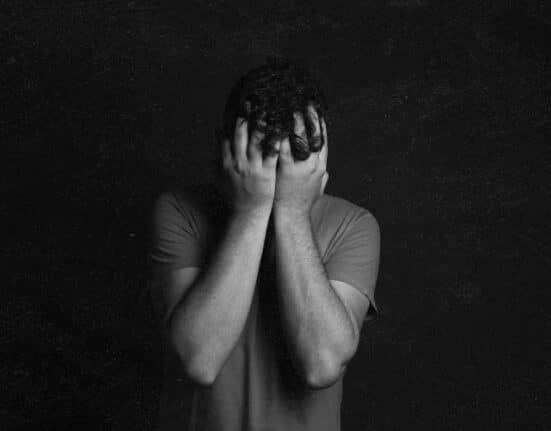FOR many years, mental health is something that most people come to overlook with the shame of being tagged and referred to as someone who has gone.
Due to this–a stigma it created, people seemed to take their mental being and well-being for granted.
Thankfully, as years progress, more and more people begin to realize that taking care and looking after their well-being is just as important as taking care of their bodies.
Why mental health matters
Emotional, psychological, and social well-being—those are just one of the things that mental health covers. Through this, it affects how we perceive things by thinking, acting, and feeling.
This also determines how we make choices, how we handle stress, and how we relate to others.
The catch about mental health is that it is something that we wouldn’t really be able to see unlike when our bodies are declining through sickness. However, a bad mental health can also take a toll on your physical health.
For instance – depression and anxiety.
How a bad mental affects your overall well-being
According to Healthline–Depression is a common mental health condition that can both last for short while or long term. It is also classified as a mood disorder that is described to have an effect of feelings of sadness, loss, and anger.
While depression is commonly perceived as a common mental disorder, the effects of it can also have an impact on your health including heart, kidney, nervous system, and overall immune system.
Depression causes the stress hormone to speed up heart rate–making the blood vessel tighten that ends up putting your body in a prolonged state of emergency. Over time, this can later lead to heart disease.
Aside from the risk of developing heart disease in the future, depression also has a negative effect on the immune system–making one vulnerable to infections and diseases.
Meanwhile, the same thing goes with anxiety.
While anxiety and depression are both different–both feelings can also manifest on a person’s physical health.
How’s your mental health so far?
For this article, RepublicAsia has reached out to 2 Gen-Z’s to check into their mental health.
For 21-year-old Ashley Ignacion, she stated in the interview that she’s been feeling productive as of lately—however, she thinks that she’s unstable as she’s still feeling that wave of sadness from time to time for some time.
The wave of sadness that she’s feeling is also sometimes caused by when she wasn’t satisfied with the productivity level she’s supposed to achieve. However, despite feeling that way sometimes, she is now in a better place in terms of her mental health compared to the past months.
Ashley can tell that her mind is not in the right once she felt like she didn’t have the energy to do anything. Through this, she get frustrated of not wanting to do anything—feeling the weight of not doing anything, pulling her down.
“Even entertaining myself feels like a chore, thinking feels like a chore, and everything just feels too much for me. Sometimes, it can also be a feeling of emptiness, like I’m too tired to feel anything.” She said.
As a form of self-care, she first tries to escape reality by reading and if that doesn’t work for her, she recollects by walking or spending time with herself.
“I would dress up, go somewhere just to try and get comfortable with just being myself. Once, I feel in tune with my body, I feel better, I then reorganize and do some kind of reset to feel okay,” she said.
For 18-year-old Jhon Randol Pollicar, he stated that his mental health is currently holding up as he face various challenges that contribute to his anxiety.
Aside from not having an allowance that adds financial pressure, he is also anxious about starting his second year in college for this upcoming school year.
His queue when recognizing a decline to his mental health is when his mood suddenly changes from time to time as he feels tired all the time.
And to ease himself from the stress, Randolph will turn into watching anime to relieve himself.
“I find anime to be a great stress reliever. The stories can be so imaginative and the characters often face challenges that I can relate to. Immersing myself in another world for a while can be a real mood booster.” He said.
Aside from finding an anime to watch, Pollicar also spend quality time with his family.
“Spending quality time with my family is a huge source of comfort for me.” He said.
“Whether it’s watching a movie together, playing games, or just having dinner and catching up, being around loved ones makes a big difference in my mental well-being.” He added.
Checking in with others
While it is important to prioritize our well-being, checking in with our loved ones also matters and this is just one of the ways on which we can show them that we care.
Most of the time, talking about your problems with other people may come off as a difficult task to do–this is especially when it is our mental health that’s the subject matter.
There are times where we get to overlook what our loved ones are feeling and in some unfortunate situations–despite trying our hardest, somehow there are those times on where we wouldn’t be able to see how they are.
And that’s one of the trickiest parts of our mental health, it’s something that the human eye can’t easily distinguish.
But what are usually the tattletale that someone isn’t doing okay?
Ashley Ignacio first checks unusual behavior such as not speaking or when something is off about them.
“It’s easy to spot a different energy from a person once you get to know them and if you pay attention. I just try my best to pick this up. So there’s no specific routine to check on them, I just try my best to observe,” she said.
Meanwhile for Randolf, he stay connected with his friends everyday buy sharing funny TikToks and inspirational messages that resonates with them.
“Building a strong bond through laughter, shared experiences, and moments of reflection and with that we are somewhat connected everyday,” he said.
When it comes to telling that his friend is not doing well, he would rely on his intuition, picking up on subtle shifts in his friend’s moods and behavior.
“If I sense something’s off, I’ll reach out with a caring message or question to see if they need someone to talk to.”
Comforting your loved ones
Helping someone to feel at ease was never easy, but that doesn’t mean that one shouldn’t try to help out their loved one especially when they’re having their battles within.
In times of need, Ashley Ignancio lends her ears to listen to her friend when he or she is having his/her battle.
“I listen, I listen to what they have to say, to what they feel and ask them if there’s anything I can do to help. Because at the end of the day, the choice is theirs if they want to be comforted, be given advice, or be distracted–I remind them of that choice,” she said.
Listening is also something that Randolf does when his friend is in need of help.
“While I might not always find the perfect words, I’m a dedicated listener who strives to understand my friends’ feelings by offering a supportive ear and empathetic presence.”
How useful was this post?
Click on a star to rate it!
Average rating 0 / 5. Vote count: 0
No votes so far! Be the first to rate this post.
We are sorry that this post was not useful for you!
Let us improve this post!
Tell us how we can improve this post?








